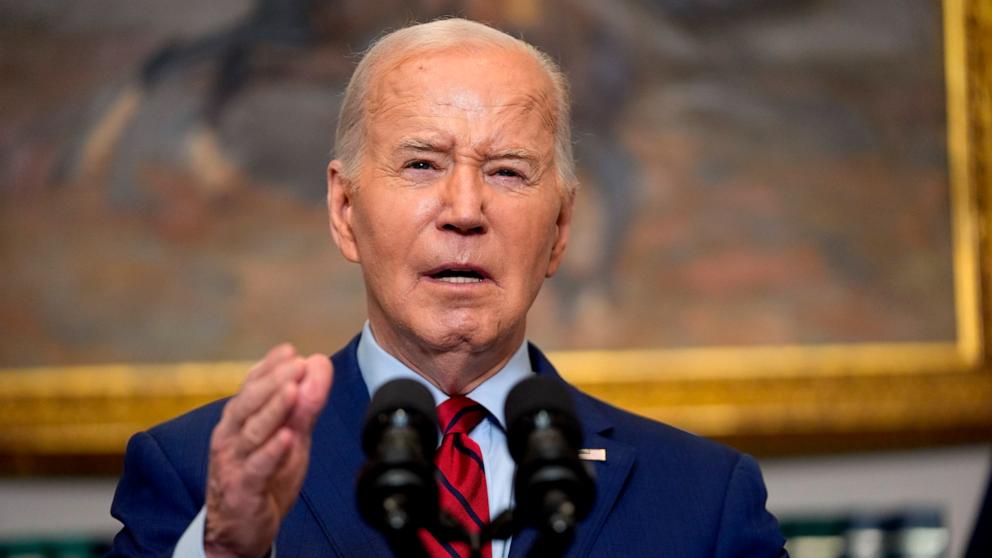A shrine on an extinct volcano in Myanmar was once populated by pilgrims who prayed to the flower-eating spirit Popa Maedaw. But a civil war has cut off the complex from believers.
Meanwhile, prayers at the Taung Kalat shrine have fallen silent. The surrounding plains are a war zone and access to the faithful is largely blocked by fighting and checkpoints occupied by all parties to the conflict.
Myanmar has been in turmoil since 2021, when the military overthrew the government of Aung San Suu Kyi, ending a decade-long experiment with democracy and sparking nationwide protests.
The junta’s crackdown on dissidents sparked renewed fighting with ethnic minority armed groups in the border areas and prompted thousands to join the newer “People’s Defense Forces” formed to fight the military.
“There aren’t many young people here anymore,” said a shopkeeper on the road that winds through dense forest to the summit of the extinct volcano Mount Popa.
“They went to join the PDF.”
The plains around Mount Popa are home to the Bamar ethnic majority and have remained largely untouched by decades of conflict between the military and armed minority groups in the remote jungles and mountains.
Today, the region, with its rolling fields of sesame, pulses and beans – dotted with the golden towers of Buddhist pagodas – is a battlefield.
PDF fighters use homemade mines to ambush military convoys and regularly assassinate local officials accused of collaborating with the junta.
The junta has armed and trained civilian militias, and its troops are accused of razing villages and massacring residents suspected of supporting the PDFs.
The warring sides use checkpoints along the roads they control to collect “taxes” from travelers.
On the road to neighboring Myingyan district, a group of villagers asked AFP to turn back.
“The situation is bad if you go this route,” said one.
In May, PDF fighters killed dozens of people, including civilians, in a raid on a pro-military village in Myingyan, local media reported.
Days later, the well-known abbot of a monastery was shot dead by security forces at a checkpoint north of the second largest city, Mandalay.
The junta initially blamed PDF fighters, but later said its own forces were responsible.
– Wish Fulfiller –
The Taung Kalat Shrine is dedicated to Popa Maedaw, one of dozens of nats, or guardian spirits, that exist alongside Buddhism in Myanmar.
Followers believe she has the power to grant wishes.
They also believe that she was a flower-eating cannibal who transformed into a beautiful woman when she fell in love with a royal envoy – and that she later died of lovesickness when the monarch ordered the murder of her lover.
Along the shrine’s steep staircase, tiles record donations made to the shrine by senior officers of the military that has ruled Myanmar for most of its history since independence from Britain.
One of the Popa Maedaw statues is meant to resemble Aung San Suu Kyi, Myanmar’s figurehead of democracy and the military’s most famous enemy.
Ahead of the 2020 elections, officials from their party, the National League for Democracy (NLD), held a private ceremony at the Taung Kalat Shrine to congratulate them on their victory, senior party sources said.
The NLD later won a landslide victory, destroying its military-backed rival.
The military made unproven allegations of massive electoral fraud and regained power in February 2021, triggering a civil war that is now in its fourth year.
In an effort to crush resistance across Myanmar, the military announced in February that it would draft men aged 18 to 35 to bolster its ranks.
At the Taung Kalat Shrine, a woman from Pyin Oo Lwin town made a donation for the success of her small business. She held a bundle of notes to her forehead while a priest recited a mantra.
The military’s elite officer academy is located in Pyin Oo Lwin, about six hours’ drive away.
In recent days, ethnic minority fighters have come within about 50 kilometers of the city and engaged in battles with junta troops.
At the foot of the shrine, there were only a few customers buying the flower offerings, toys or T-shirts offered at the stalls.
Some offered slings and sticks to ward off the hordes of monkeys that live on Mount Popa and the donations of pilgrims.
“Now the yield is poor and the primates are becoming more aggressive,” said a trader selling water and juice bottles on the stairs.
“When more visitors came here and fed the monkeys, they were fat and strong,” she said.
“They are few and far between now because not many visitors come.”
lmg-hla-rma/ssy/ser
FOX41 Yakima©FOX11 TriCities©




